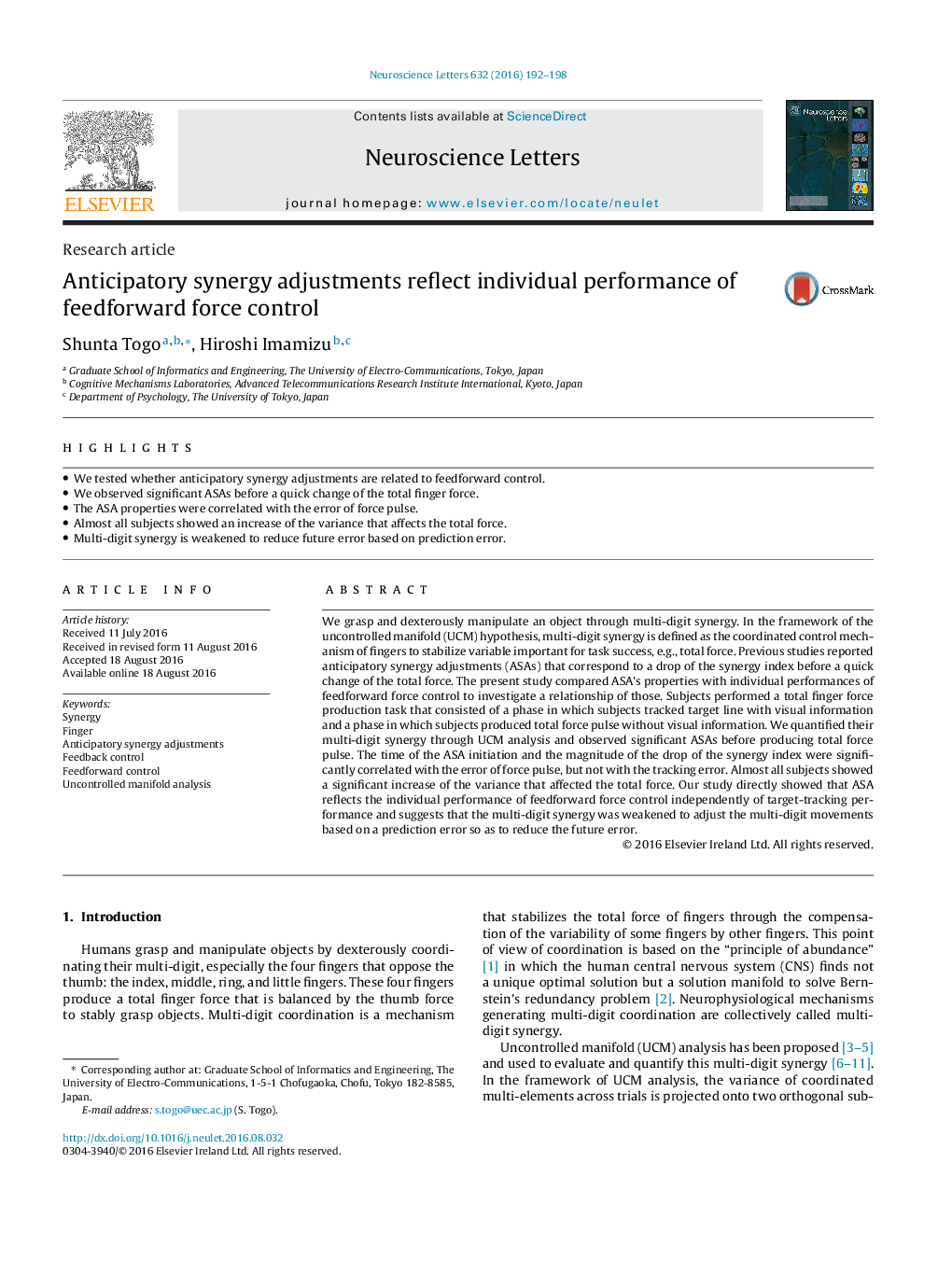| کد مقاله | کد نشریه | سال انتشار | مقاله انگلیسی | نسخه تمام متن |
|---|---|---|---|---|
| 6278971 | 1296532 | 2016 | 7 صفحه PDF | دانلود رایگان |
- We tested whether anticipatory synergy adjustments are related to feedforward control.
- We observed significant ASAs before a quick change of the total finger force.
- The ASA properties were correlated with the error of force pulse.
- Almost all subjects showed an increase of the variance that affects the total force.
- Multi-digit synergy is weakened to reduce future error based on prediction error.
We grasp and dexterously manipulate an object through multi-digit synergy. In the framework of the uncontrolled manifold (UCM) hypothesis, multi-digit synergy is defined as the coordinated control mechanism of fingers to stabilize variable important for task success, e.g., total force. Previous studies reported anticipatory synergy adjustments (ASAs) that correspond to a drop of the synergy index before a quick change of the total force. The present study compared ASA's properties with individual performances of feedforward force control to investigate a relationship of those. Subjects performed a total finger force production task that consisted of a phase in which subjects tracked target line with visual information and a phase in which subjects produced total force pulse without visual information. We quantified their multi-digit synergy through UCM analysis and observed significant ASAs before producing total force pulse. The time of the ASA initiation and the magnitude of the drop of the synergy index were significantly correlated with the error of force pulse, but not with the tracking error. Almost all subjects showed a significant increase of the variance that affected the total force. Our study directly showed that ASA reflects the individual performance of feedforward force control independently of target-tracking performance and suggests that the multi-digit synergy was weakened to adjust the multi-digit movements based on a prediction error so as to reduce the future error.
Journal: Neuroscience Letters - Volume 632, 6 October 2016, Pages 192-198
